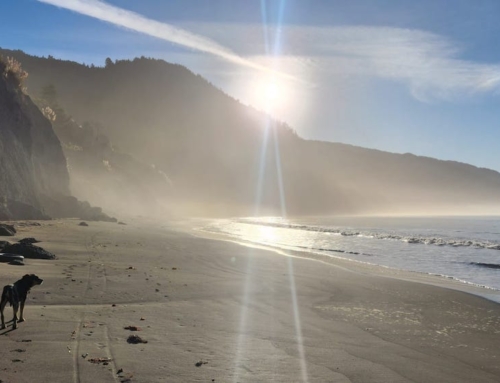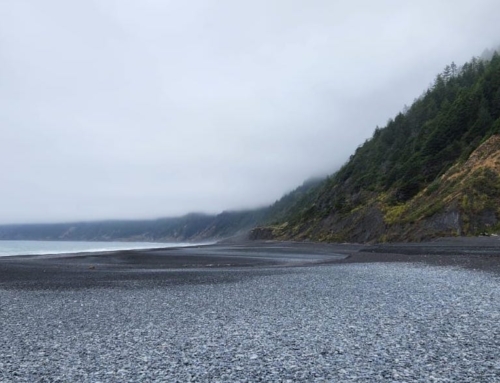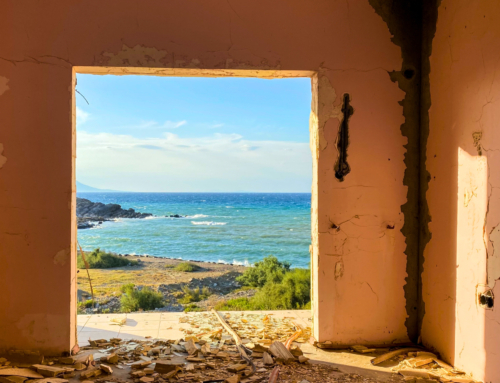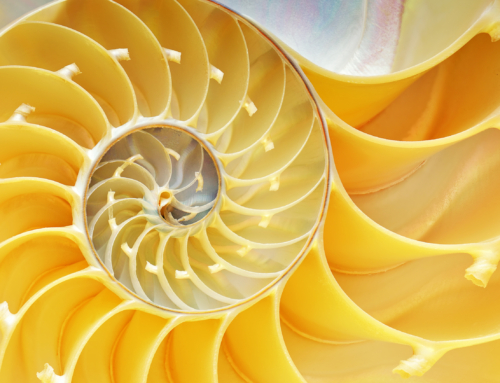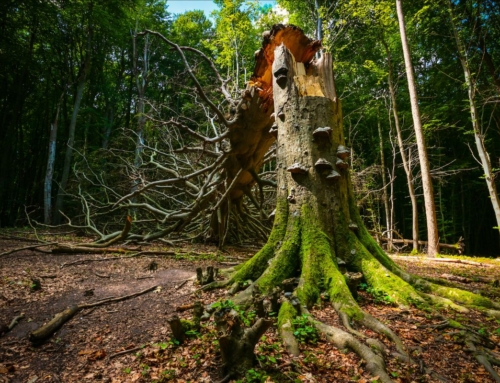
In 2024, I’m sure we’re all exhausted by the unprecedentedness of our times, but in our own lives this might be a (annoying) theme as well. And it forces us into an unfamiliar mode of being in Western culture: the pause. Case in point: my own life.
As I descended into what C. G. Jung called the underworld during the last year—a place where we confront unconscious forces that upend our lives in order to reclaim ourselves more fully—I was faced with a particularly agonizing tension. It’s the tension that is created when life moves in opposition to how we’re culturally hardwired to operate. Everything about my daily existence needed to stop. But every part of my being searched onward for a path, for answers, for a plan. As a thinker and a problem solver, this created some acute suffering. My strengths stopped working for me.
Not only is every cell in our body programmed for regeneration, to a point, but societally and spiritually we are compelled “forward” into growth and renewal, into progress and improvement. It is the instinct toward incarnation that Jung found central to phenomenon of living. When something tough happens, our Western instincts drive us to “work on it” in some way. We ensure our crises are productive, don’t we!
But what happens to us psychologically when life seems to stop, needs to stop? Especially when we’ve bought into the immense pressure to carry on, be strong, and will our desires into existence?
What happens when there is no planning to do, no answers to seek, no fixing or adjudicating?
It is often a point of disorientation and panic.
I have always lived in the tension between action and stillness, between activism and inwardness; it’s just part of my makeup. But I leaned hard into the “doing” part of life so much and for so long that the “being” part became atrophied, unskilled. When life circumstances knee-capped the “doing” part of me—Tanya Harding-style—the “being” part was forced center stage in all its weaknesses.
And life as I had lived it came to a screeching halt.
In storytelling, the dramatic pause is utilized to create tension, and to challenge our impulse to perpetually fill in the gaps. It is an intentional period of discomfort for the reader, the audience, the characters, you.
As art imitates life, so it is with us. The dramatic pause might be an illness or injury, a divorce or death of a beloved pet, the undoing of a career, a global pandemic or a local catastrophe.
As much as we would like to believe otherwise, these are not points in time. These are moments of initiation into the void where there is nothing to do, but a whole part of our lives to part ways with. Importantly, these are moments where any skills and roadmaps that you had from your life before are no longer applicable or effective, rendered useless. Your currency is no longer good here, and the only way to endure the void is to feel around in the dark with a different “way of seeing” than the way you usually try to look at and understand things.
This means not knowing.
This means not knowing.
This means not knowing.
Yes, it needs to be said 3x.
And the impulse to know will try to overtake the necessity of not knowing in every moment, until your eyes become accustomed to the dark.
In these moments, we are not being “rerouted” on to some new adventure, contrary to what we would like to believe. We are being stopped dead in our tracks. And the impulse to find a path forward, and the compulsion to repair, these things create a strain on the whole system. So, too, does our impulse to tell a story about how we’re still moving forward, when that just isn’t so.
When the world gives you a dramatic pause, but you keep trying to rewrite the script, you’re negating the power of the tool. Our capacity for that tension that comes with the pause is directly correlated with our capacity to live fully, in reality, with whatever hand is being dealt.
It’s not just okay to stop, it is a requirement in these periods. If you keep trying to blurt out lines but the cast around you is in freeze-frame, pain and frustration are the only outcomes. You will splatter against the Saturnian walls of whatever is holding you there. You will have to recombobulate yourself over again as you shatter into pieces against the force of stillness.
I don’t wish this on anyone. But dramatic pauses seem somewhat unavoidable for most of us. I didn’t fully respect its force until one brought me to my knees in every single way.
So, if you’re feeling the frustration or agony of not knowing and not being able to operate in all the ways you have until now. . . might a part of your life be in a dramatic pause? The void does not always consume EVERY aspect of our lives. For me, the dramatic pause was a massive blanket that shrouded almost everything; however, my dissertation and my depth psychology career has continued on full steam ahead by the grace of . . . something. It has kept me tethered to the future and engaged in a reality that lives stretched out before me and requires a different set of skills from those that got me here.
As always, I am here to sit with you in your pause. To help you figure out what your tether to your next chapter might be. If you need support in your transitions and initiations – please reach out. It is a pleasure to serve that most potent (albeit excruciating) quality of life.
With deep humanity,
Erika
PS: In case you missed it, I’ve opened up a few 45-minute spot-coaching sessions each week to support you around anything timely or pressing. Take advantage of this no-commitment way of working together: Book a time here, or gift to a friend or colleague.

